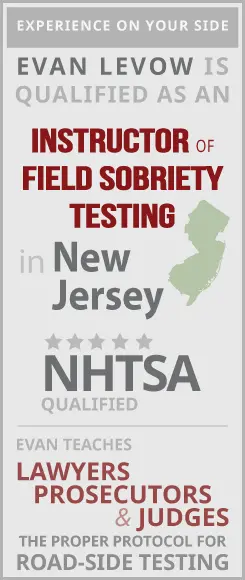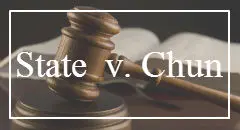Facing a DWI charge in New Jersey? If you have been convicted before, in any state, you may be facing enhanced penalties, including loss of license, fines, and incarceration.
How Do Prior Convictions Affect My Current DWI Charge?
If you have any prior convictions, those “priors” can be counted against you for sentencing purposes. But certain conditions have to apply.
According to New Jersey’s DWI statute, your previous offense must be “of a substantially similar nature” to the current charge. And only convictions in which your BAC was at or above the legal limit in New Jersey can be factored into sentencing. If you can “demonstrate by clear and convincing evidence that the conviction in the other jurisdiction was based exclusively upon a violation of a proscribed blood alcohol concentration of less than 0.08%”, you might be off the hook.
Obviously, there may be valid arguments to avoid enhanced penalties, even if you are convicted on the current charge. As we’ll see below, a process known as “Post Conviction Relief” may be able to help.
What Happens If I Have Multiple Convictions?
For subsequent offenders, two or more convictions in the past generally enhance the penalties of one in the future. But there are certain exceptions in this regard, too.
If your second offense occurred more than ten years after the first, the court will treat that second DWI as if it were your first. The same applies for three past offenses: if the third happened ten years after the second, it will be treated as your second in determining sentencing.
A fourth or greater conviction will always be treated as a third conviction for sentencing purposes, regardless of their dates. For example, offenses from 1993, 1994 and 1998, and now a charge in 2014 would result in potential 4th offender status, with a pending penalty of 10 years loss of New Jersey driving privileges, fines, surcharges, and 180 days in county jail, 90 of which are mandatory in jail, and credit for up to 90 days in an in-patient alcohol or drug rehabilitation facility.
Case Example: State v. Burroughs
But the effect prior convictions can have on sentencing is complicated.
A case called State v. Burroughs, 349 N.J.Super. 225 (App. Div. 2002), is the current law on this sentencing issue.
Burroughs had convictions in 1982, 1998 and then in 2000. In 2000, his third offense, Burroughs was sentenced as a second-time offender, because 18 years had passed between his first and second offenses. The Municipal Court felt that Burroughs’ first offense should be “forgiven” in the sentencing for his third. Another prosecutor disagreed, arguing that because only 2 years had passed between his second and third convictions, Burroughs should be sentenced with three offenses in mind, not two. The Court eventually upheld this argument, and sentenced Burroughs as a third-time offender.
But in many cases, decisions like this can be avoided.
What Is Post Conviction Relief?
If you are currently facing a second or third offense, the attorneys at Levow DWI Law, P.C. can review your first and / or second DWI. If you were unrepresented, or perhaps not represented as well as you thought you should have been, we can order the case file from the court and the police department, and make an independent assessment of your case.
If things were missed in your case, we can seek to reopen it. Ultimately, we may even be able to make an application and have your charges dismissed. Our defense attorneys have had considerable success in the past, with charges dismissed even years after the disputed judgment.
If your conviction can be overturned in a prior case, the potential penalties you face in your current case will be reduced significantly. We usually don’t charge anything extra to review the records from these prior cases. This a critical time, and we want to do everything we can to help.
Can You Help Me Appeal A Recent Conviction?
If you were represented by someone else in a recent DWI case, we may still be able to help.
You have 20 days from the date of your conviction to file an appeal to the Law Division, or county level court. That court will review the testimony from the Municipal Court, and, where warranted, can find you not guilty and dismiss the charges against you.
If you have already appealed to the Law Division, our lawyers can help you with an appeal to the Appellate Divsion. You have 45 days from the date of your conviction in the Law Division to appeal to Trenton. This appeal involves “questions of law”, as opposed to resolving factual issues.


